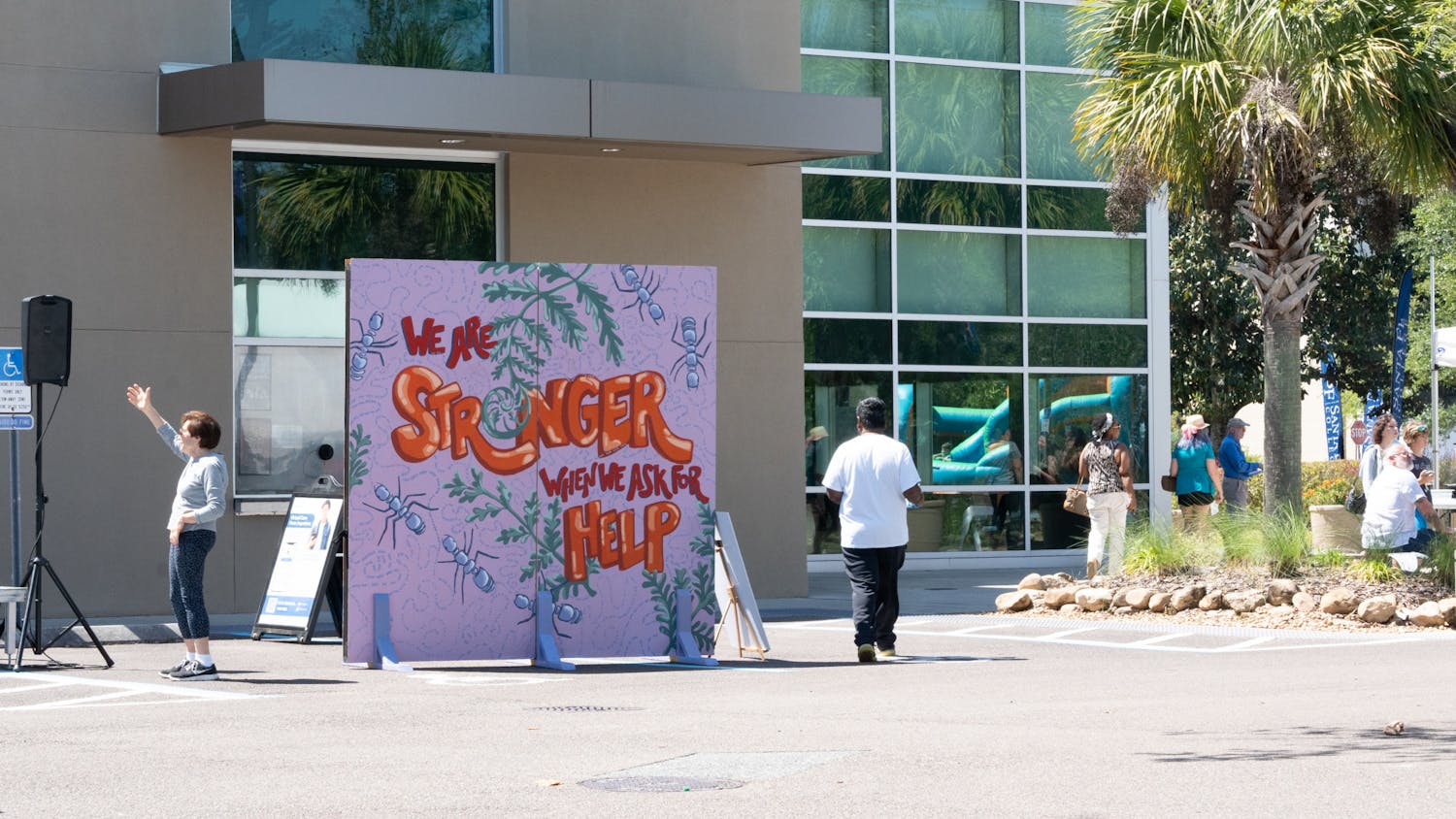The Art Festival at Thornebrook was where things changed.
Gainesville resident Yvonne Ferguson, 33, was painting “something inconsequential,” as she tells it, when she turned to see a young Black girl standing nearby with her family, enthralled by what she was painting. In speaking with her mother, Ferguson learned of the girl’s desire to be an artist, and that she had never seen someone who looked like her do that in real life before.
Ferguson’s upbringing was different than hers. From a young age, her home was filled with nothing but Black art, literature and music. She said that growing up surrounded by art that reflected her reality validated her as she entered the world.
“Everything that I experienced in my home reinforced my wholeness, my value, my worth,” she said.
This celebration of Black culture is something that has come to define Ferguson’s work, specifically the countless portraits she’s painted of iconic Black figures such as Malcolm X, Nina Simone, Angela Davis, James Baldwin and Tupac Shakur. She believes that children like the one at the festival, and Black people in general, need to see these figures as icons so they can recognize that same greatness within themselves.
Ferguson’s interest in art began at an early age. When she would finish a coloring book, she would borrow notebook paper from her mother to redraw the outlines from the book so that they could be colored in once again.
Her focus on painting took hold when she moved into her own place for the first time. She needed artwork to fill the walls, but when she went into stores to find some she would see nothing but pictures of heralded white actresses like Marilyn Monroe and Audrey Hepburn. With the encouragement of her mother, she decided to create her own art to fill the empty space. Friends began asking for pieces, and the business snowballed from there.
She’s been painting full-time for over a year under the Diasporic Pigments brand name, shipping pieces to New York, Los Angeles, Atlanta and Texas, to name a few. She said she’s grateful for the platform she’s built up, yet is still wary of the business side of art, which is largely controlled by wealthy collectors.
“In general, the Black perspective in this country is really neglected unless there’s some sort of profitability for other persons involved,” she said.
In the wake of recent protests against police brutality, she’s tried to partially disconnect from the news to avoid being totally drained. Change is something she’s cautiously optimistic about, but she acknowledges that both individuals and corporations must forgo their own personal comfort for that to happen.
She’s painted two murals in Gainesville, the second of which depicts Don King, the city’s first Black fire chief. Ferguson is drawn to the permanence of murals and the different meanings it can inhabit in communities, and wants to make more in the future. Above all, she wants to display her culture proudly and inspire real change in those who consume it.
“I want to be that Black art pollinator,” she said.
Amia Davis, a 20-year-old UF telecommunication junior, remembers the excitement of learning about the behind-the-scenes of her favorite film, “Avatar,” and being inspired to take TV production classes throughout high school.
She also remembers a recurring feeling of sitting in the backseat in high school film clubs, where the leadership was almost exclusively white and male. She would never take the front seat in projects because she thought her skill level wasn’t there yet.
Going into UF, she never felt like there was a group that fully represented her until she found F.E.M. Films in her sophomore year. F.E.M. Films, which stands for the Female Entertainment Machine, is an independently run organization of UF students that encourages women to turn ideas into action. Although it’s centered around film, the organization welcomes musicians, artists and dancers into their circle, creating a bubble of creativity.
Davis’ ultimate goal is to become a director, and she’s currently taking acting classes, writing and doing videography to become a more well-rounded asset in a production. She said she constantly looks to directors like Ava DuVernay, Jordan Peele and Barry Jenkins as inspiration that she can make progress in the film industry, which she said has a history of suppressing Black and female voices.
In her own work, she said that much like in Jenkins’ film, “Moonlight,” she wants to create in a way that captures Blackness in totality. She said that while stories that detail Black oppression and struggle are important, it’s equally important for there to be stories about Black joy.
“We’re more than just our history,” she said.
The connections she’s made with F.E.M. Films have given her greater confidence to pursue her own projects and build up a network of support that will continue for years to come, she said.
“We have the freedom to do anything we want,” Davis said. “We can do projects that are associated with what’s going on in the world right now without worrying about how that’ll make people feel.”
Contact Thomas Holton at tholton@alligator.org. Follow him on Twitter @thomas__holton.
This story is a part of an Avenue series called “The Voices of Gainesville” meant to spotlight black-owned businesses, black artists and black musicians in Gainesville.






